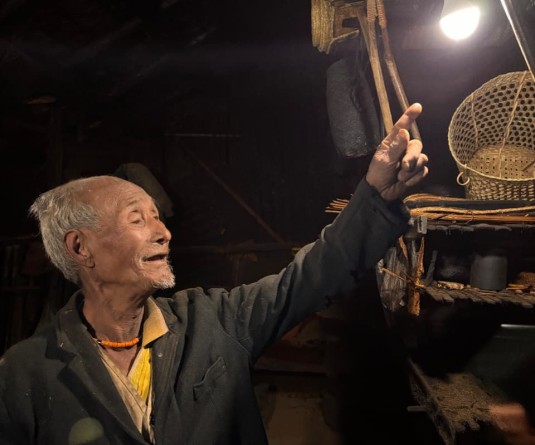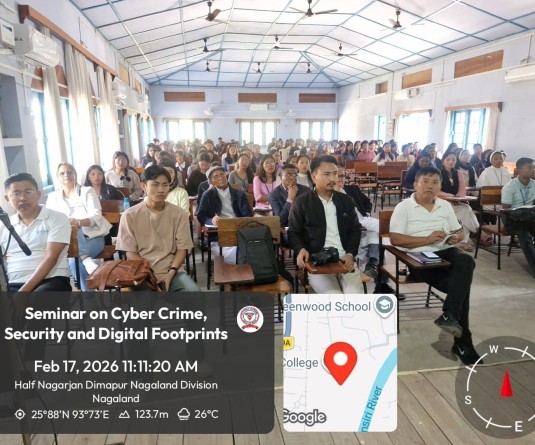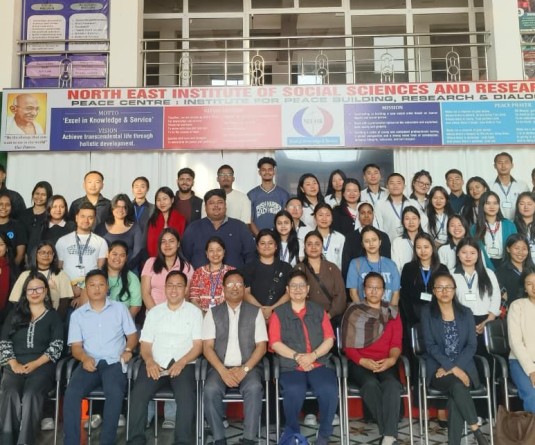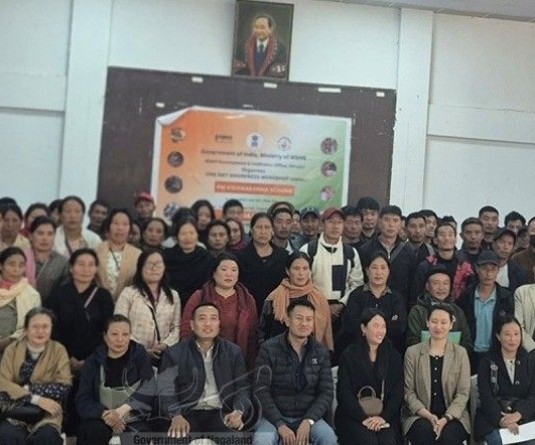Participants segregating waste during a cleanup event. (Photo Courtesy: The Himalayan Cleanup/website)
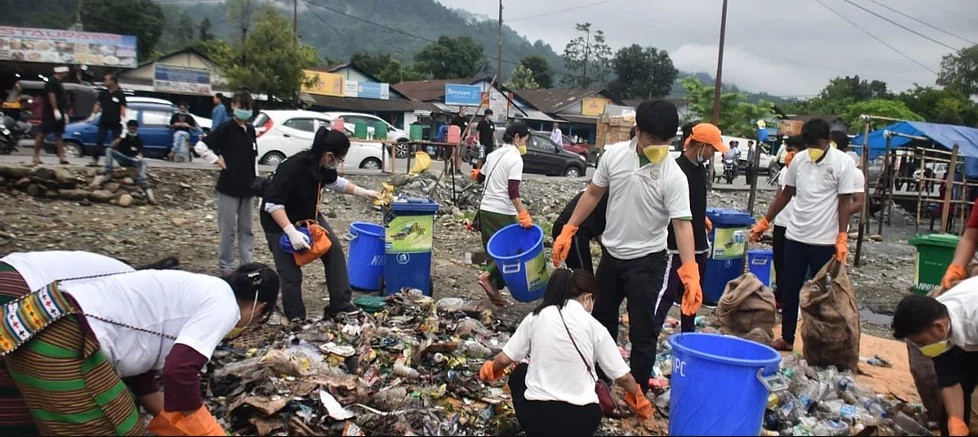
Morung Express News
Mokokchung | June 7
The Himalayan Cleanup 2021, where more than 350 participants across all the states of the Indian Himalayan Region participated, revealed that 60% of plastic waste was multi-layered food packaging which are non-recyclable.
“The Himalaya is littered with these problematic plastic wastes with waste management systems and institutions left clueless to address it. This revelation also alludes to nutritional challenges that these hyper processed and taste enhanced food that is being preferred during the lockdown,” stated the organisers in a press statement.
Organised annually by the Integrated Mountain Initiative and Zero Waste Himalaya, The Himalayan Cleanup (THC) is a call to all mountain communities, individuals and organisations to reflect, switch and demand for sustainable living as well as to bring to the forefront the Himalayan waste crisis. The usual site clean ups of THC was scaled down and made more personal this year by taking it to individual homes to be reflective of the worsening state of the pandemic.
Saying that efforts of THC was to bring attention to the burgeoning waste crisis of their mountains, specifically that of single use plastic waste, the organisers added that their mountains’ fragile ecosystems were overburdened with woes of water, land degradation and the changing climate.
“THCs demand is to bring in systemic changes through awareness and Extended Producer Responsibility especially for products and packaging that have no solution like the 60% multi-layered food packaging plastic waste that the THC 2021 has revealed,” the organisers said.
Taking the question of who is responsible for the plastic waste, THC included a brand audit which was conducted in collaboration with Break Free from Plastics—a global movement envisioning a future free from plastic pollution. The brand audit revealed the top brands that were polluting the mountains and demanded that the brands own responsibility for the wastes through Extended Producer Responsibility mechanisms of providing support to waste management institutions and ultimately design out these products and packaging.
As per information provided by the organisers, THC 2021 showed that the top 10 plastic polluters were: Hindustan Unilever; Nestlé; Asian Thai Foods; PepsiCo India; CG Foods; Hindustan Coca Cola; Parle Products; GCMMF; ITC, and Parle Agro Pvt Ltd.
‘THC 2021 Conversations,’ an online session which was held as part of The Himalayan Cleanup 2021 saw active engagement from youth across the mountain states with over 200+ participants. The conversations dwelled on unpacked food from the perspective of Zero Waste, sustainable menstrual health practices, composting for degradable and the alternatives to switch to a zero waste living. Participants were enthralled to learn their waste profiles, top polluting brands and how to make the switch, said Prerananandita Baisnab, Programme Coordinator, Integrated Mountain Initiative (IMI).
Meanwhile, a concluding event called ‘The Way Forward’ was held on June 6. The session was attended by participants from across the Himalayan region and emphasised the need to amplify the demand for Extended Producer Responsibility (EPR) of companies.
The organisers said that multi-layered single use food packaging plastic was of utmost concern and recommended mountain sensitive waste management policies as well as stopping the usage of single use plastics and phasing out multilayered plastic.
During the session, Satyarupa Shekhar from Break Free from Plastics stated that the 450 billion dollar Oil and Gas industry was projected to see a 50% expansion in the next 10 years thereby increasing the production of plastics . In this regard, Shekhar stated that the THC would provide the platform which plays a crucial role in providing data for policy advocacy to push national and global policies.
Dr Dipankar Ghose, Director, WWF India raised the issue of pandemic generated plastic waste and the need to flag this burning issue while PD Rai, President, IMI reiterated that as much as its important for IMI as a platform to engage with the process of systemic change, it was also important to engage “here and now.”
The Himalayan Cleanup is an initiative supported by the European Outdoor Conservation Agency (EOCA) and WWF-India.


